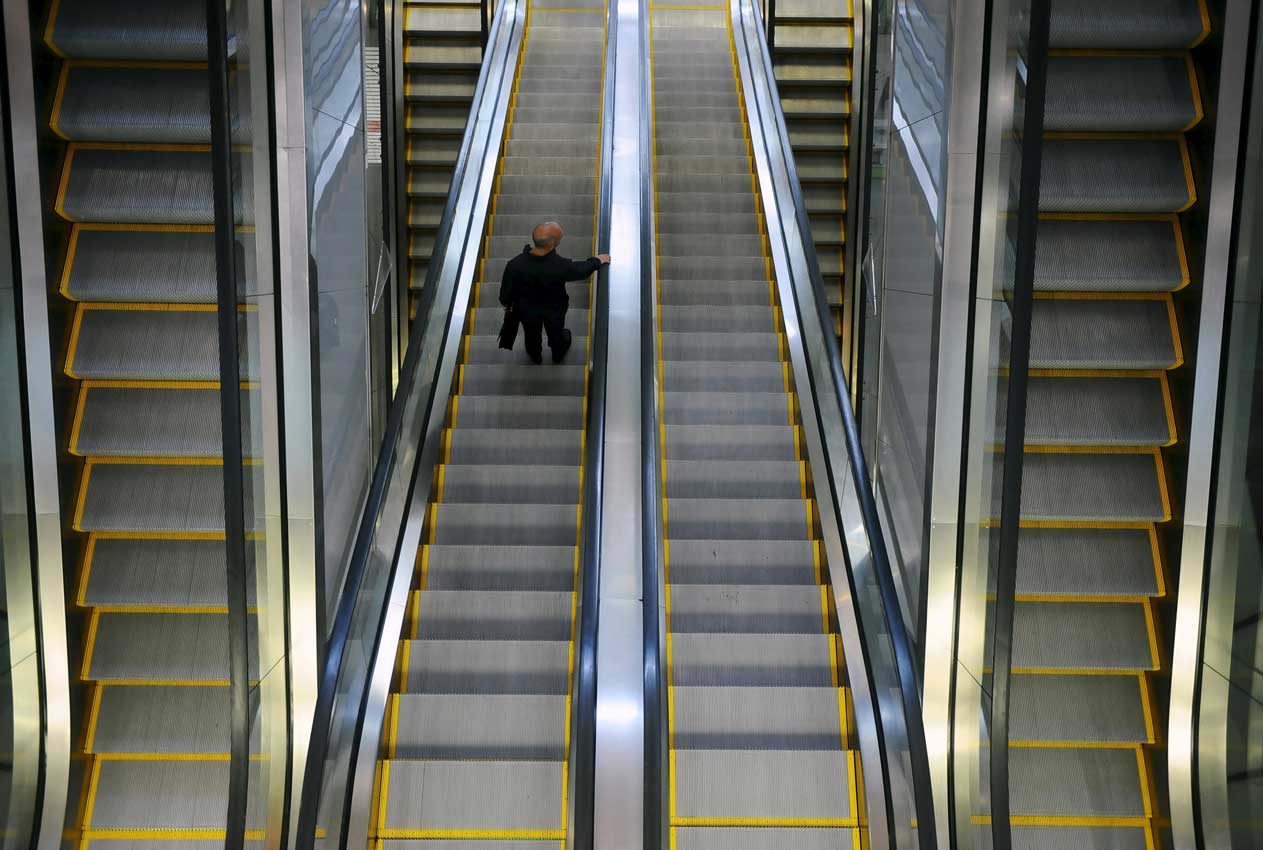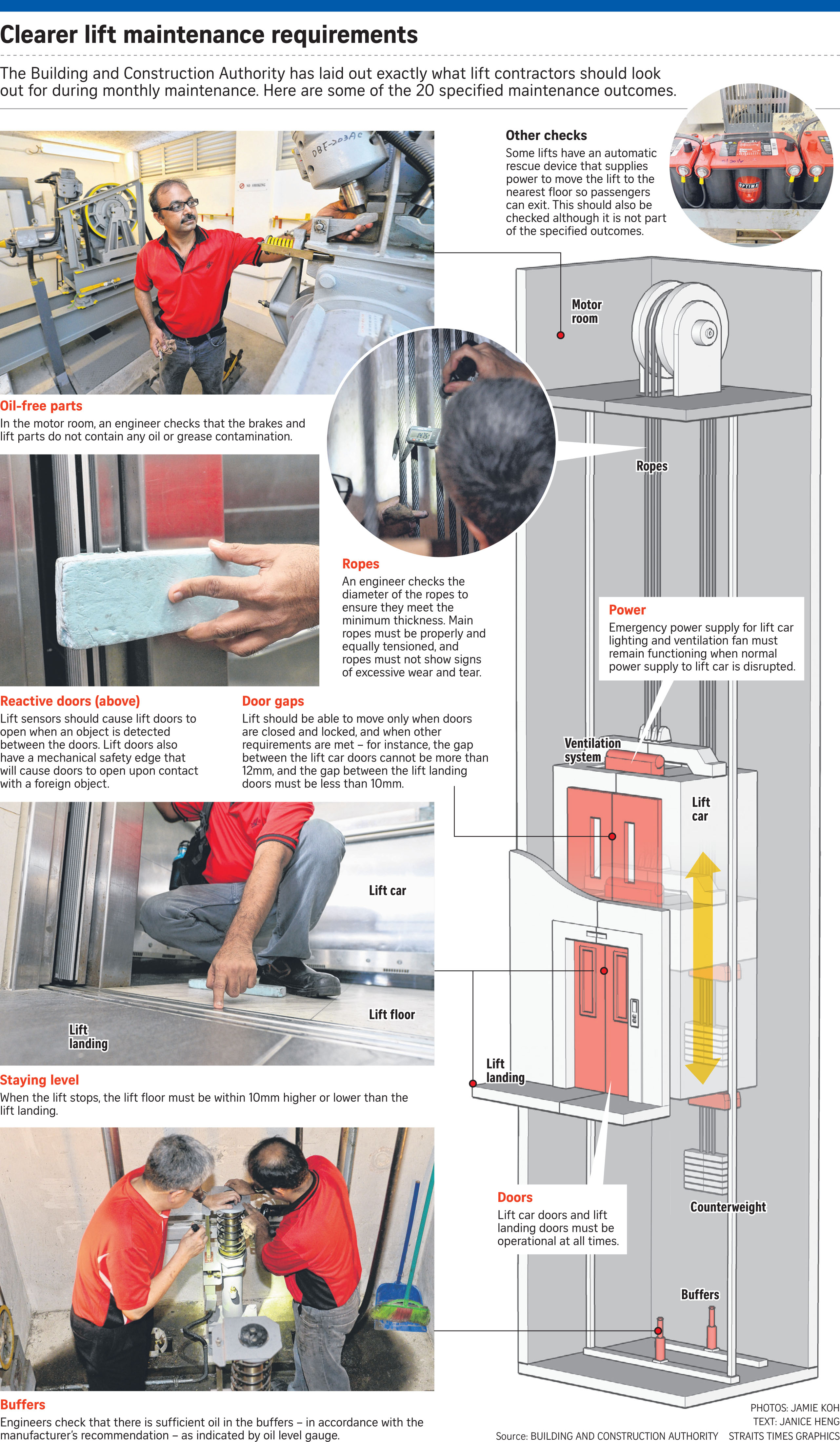New regulations are being introduced to ensure escalators undergo maintenance at least once a month.
Their owners must also apply for a permit to operate (PTO), and report any incident involving death, injury or malfunction of any safety- critical part to the Building and Construction Authority (BCA).
This is part of the new escalator regulatory regime – similar to regulations for lifts – announced yesterday by the authority.
BCA chief executive John Keung said “not that many” escalator accidents have been reported in Singapore, but there have been some abroad. In July last year, a woman died in China when she fell through a floor panel at the top of an escalator. “That’s why we are concerned. Let’s make sure we do all that we can to prevent such accidents,” Dr Keung said at a media briefing.
Current standards already require escalators to have monthly maintenance, he said. “But we want to formalise this and put it in our regulations.” There are about 6,000 escalators in Singapore.
From Nov 1 this year, all escalator owners must engage a BCA-registered escalator contractor to do maintenance of their machines every month. The contractors will have to achieve 10 specified maintenance outcomes, such as checking that the emergency stop switch is working.
For some owners, this will not require much change. CapitaLand Mall Asia head of operations for Singapore Jason Loy said: “We (already) engage registered contractors to carry out monthly servicing and maintenance of the lifts and escalators in our shopping malls.”
Escalators will also have to undergo annual testing by a registered contractor in the presence of an independent authorised examiner.
Once it is certified that an escalator is in good working condition, the owner will use this certification and other documents to apply for a PTO from the BCA.
Yesterday, the BCA also gave details of previously announced stricter lift regulations, including the full list of 20 maintenance outcomes that lift contractors must achieve.
Eighteen are part of existing standards, but the BCA has made some of them more detailed. For instance, existing standards simply state that the lift’s traction machine, brake and gearbox are “to be maintained”. The new rules specify, among other things, that brakes must not be contaminated or at risk of being contaminated by oil or grease.
There are two new requirements. Lift cars should be allowed to move only when the doors are closed and locked, and various conditions are met – for instance, the gap between lift car doors must not be larger than 12mm. The lift must also stop such that the car floor is within 10mm of the lift landing. In May, an elderly man using a mobility scooter died after falling over when he was backing out of a lift that was not level with the landing.
The BCA is stepping up audit checks to ensure that lift contractors achieve the outcomes, having made 40 to 50 such checks a month for the past few months. If requirements are not met, the BCA can issue a notice to maintain the lift or to suspend service, or prosecute the lift contractor. If convicted, the contractor can be fined up to $5,000.
It will also be mandatory for owners and registered contractors who carried out the most recent servicing work to promptly tell the BCA when an incident involving death or injury to passengers or malfunction of safety-critical parts occurs.

This article was first published on July 9, 2016.
Get a copy of The Straits Times or go to straitstimes.com for more stories.







